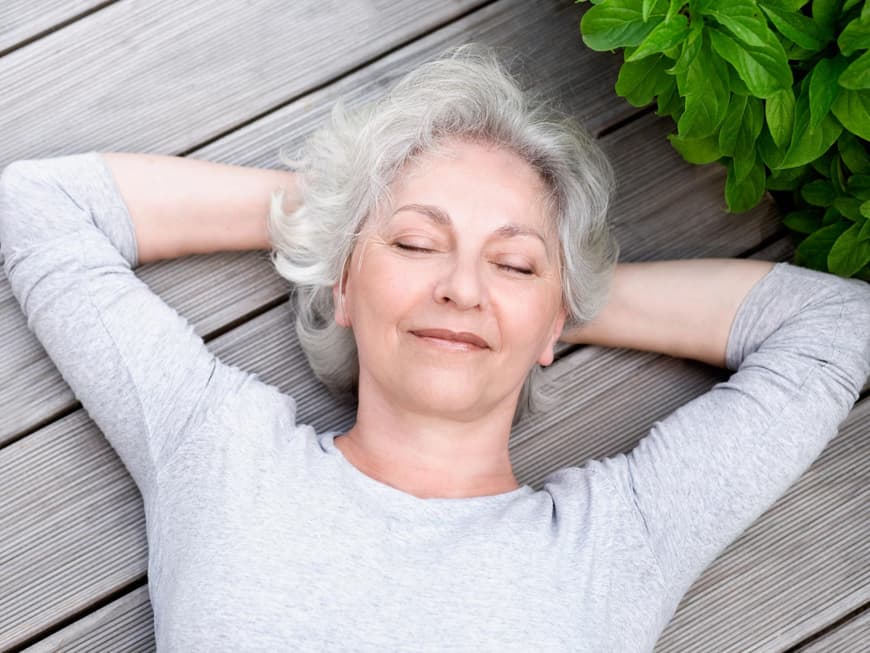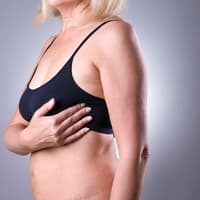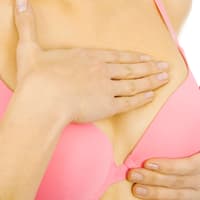
When exactly does the menopause begin?
From around the age of 45, the ovaries reduce hormone production. Ovulation no longer occurs every cycle, which is why menstruation sometimes starts earlier, sometimes later, and is sometimes stronger, sometimes weaker. Sometimes even women in their mid-thirties only ovulate irregularly - which is why women should not wait too long to have children.
Menopause: how long does it last?
Over a period of around ten to 15 years, a woman's fertility gradually declines until she can no longer have children - this period is known as the menopause. Doctors call it the climacteric, which means critical turning point.
Is the menopause so drastic?
Every woman goes through the menopause, unfortunately we can't avoid it. One in four women has no symptoms at all, the other 75 percent struggle more or less with the effects of hormonal changes.
What are the effects of this change?
Almost every second woman suffers from hot flushes and sweats, for example. Many find it difficult to fall asleep, have mood swings, are easily irritable or tired and depressed. Others feel weak and unable to cope with the demands of life as they used to.
What other symptoms are there?
Because oestrogen levels fall, the vaginal mucous membranes are less well supplied with blood. This is why it sometimes burns and itches during sex, and some women even experience pain. Three out of ten women suffer from this. The tissue of the pelvic floor and bladder is also no longer supplied with blood as well and becomes slack, which can lead to bladder infections more quickly. If women have given birth, this can even result in stress incontinence.
Do we know which woman will be affected and why?
It is assumed that there is a genetic predisposition. However, this has largely not yet been researched by scientists.
How do I know if I'm already in the middle of it?
Irregular periods are one of the first signs. The doctor can then use a so-called hormone status test to determine which phase of the menopause the patient is in.
Can I still get pregnant now?
The fertile phase only ends with the menopause, with the last menstrual period. This is reached when women under 50 have not had a period for two years and women over 50 for one year. Here too, the doctor can determine whether pregnancy is possible by measuring hormone levels.
Is there a menopause without symptoms?
It has been proven that the more relaxed women are about this time, the fewer complaints they will have. Those who live a healthy lifestyle, exercise regularly, get enough sleep and pay attention to their diet often have fewer problems. Relaxation techniques such as autogenic training, Qigong, healing eurythmy and meditation can help to regain inner serenity.
The four big W questions
Menopause: What helps against weight gain?
Due to the change in hormone levels, fat is burned less effectively and is stored. The basic calorie requirement decreases with increasing age anyway - even in men, which is why you gain weight if you eat as usual.
Menopause: What helps with nutrition?
Experts recommend lots of fruit and vegetables and little meat. If possible, don't eat anything after 8 p.m., then you will sleep better. Avoid spicy foods if you have hot flushes. To protect against osteoporosis, consume at least 1,000 milligrams of calcium daily (dairy products, nuts and cabbage).
Menopause: What helps against hair loss?
If there are too many male hormones in the body, the hair on the crown of the head in particular can fall out. This affects one in four women. There are now medications to combat this. However, this usually goes away with the menopause.
Menopause: What helps against severe symptoms?
Hormone therapy helps with particularly severe symptoms. However, studies have shown that this increases the risk of breast cancer and heart attacks. Plant power can also help: Lemon balm relaxes, St. John's wort lifts the mood and valerian helps with sleep disorders.






